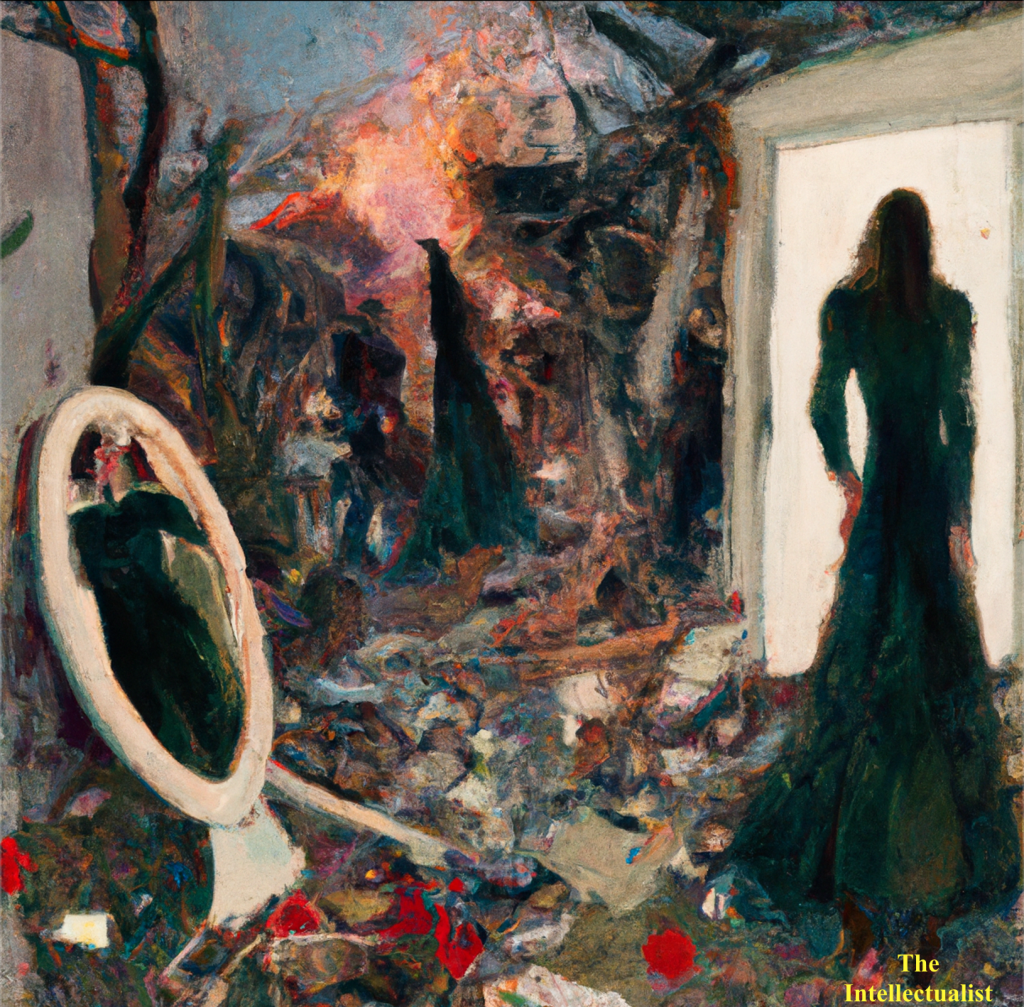It’s OK Not To Be OK, Especially During Abnormal Times

In the whirlpool of changes and challenges that humanity is currently navigating, maintaining a semblance of ‘normalcy’ has become an odyssey.
The environment we find ourselves in is far from ‘normal’, thus, feelings of dread, depression, and anxiety have become unwelcome companions to many.
These feelings can be traced back to a sense of learned helplessness stemming from the seemingly insurmountable issues surrounding us, and a realization that several aspects of our society have been on a downward trajectory.
It’s a reflex of our consciousness to the abnormality of our circumstances.
In fact, it would be ‘abnormal’ not to feel impacted or traumatized by the recent happenings. This article aims to dissect some of the profound challenges that are influencing our collective psyche:
Global and Domestic Instability
The pendulum of stability has been swinging wildly on both global and domestic fronts. Geopolitical tensions, trade wars, and humanitarian crises are but a few of the elements contributing to global instability. For instance, the ongoing conflict in Yemen has been dubbed as the “world’s worst humanitarian crisis” by the United Nations, leaving millions in dire need of aid. On the domestic front, the polarization within the political landscape, racial tensions, and economic disparities have brewed a storm of domestic instability. These factors, among others, have created an environment of uncertainty and fear, magnified by events like the storming of the U.S. Capitol on January 6, 2021, which left a deep scar on the nation’s democratic fabric.
Escalating Climate Crisis
The worsening effects of climate change are not just predictions anymore but a reality we are living each day. Wildfires, floods, hurricanes, and heatwaves are becoming more frequent and severe. The climate crisis also brings forth an existential dread, the fear for what kind of world the future generations will inherit. The Intergovernmental Panel on Climate Change (IPCC) has outlined stark predictions in its recent reports, indicating that urgent and unprecedented changes are needed to prevent catastrophic impacts.
Rampant Gun Violence
The United States, in particular, has been grappling with the menace of gun violence. The frequency of mass shootings and the perennial debates on gun control laws underscore a significant societal problem. According to the Center for Disease Control and Prevention (CDC), more than 48,000 Americans died from firearm-related injuries in 2022, highlighting the gravity of the issue. This unbridled violence not only endangers lives but also instills a perpetual fear and mistrust within communities.
Diminishing Prospects for the Younger Generation
There’s a growing concern that children born today will face more hardships and have fewer opportunities than previous generations. The skyrocketing costs of education, housing, and the burden of national debt are some of the roadblocks in their path to prosperity. The World Bank outlines how the economic fallout from the pandemic could push many countries into a prolonged period of stagnation, affecting the younger generation’s economic prospects.
Lingering Shadows of the Pandemic
The pandemic has been a watershed event, exposing vulnerabilities in our healthcare systems and economies. Its after-effects, like job losses, mental health issues, and a general sense of loss, continue to haunt many. The Pew Research Center conducted studies highlighting the significant toll the pandemic has taken on mental health, with many people reporting symptoms of anxiety and depressive disorders.
Political Disintegration
The slow disintegration of the Republican Party and the polarization it’s causing within the United States holds the potential to consume the nation’s democratic fabric. The divisive politics and the erosion of trust in public institutions are indicative of a deeper malaise, often captured in op-eds and editorials from reputable publications like The Washington Post and The New York Times.
The Tumultuous Trump Era
The presidency of Donald Trump was marked by controversy, divisiveness, and a departure from traditional political decorum. The shockwaves from his policies and conduct continue to reverberate through the political and social spheres, with experts and commentators dissecting the long-term impact of his tenure.
It’s OK Not to Be OK
It’s imperative to acknowledge that feeling ‘not OK’ is a rational response to the abnormal circumstances surrounding us. By understanding and accepting our reactions to these issues, we can foster a dialogue that might help in navigating through these turbulent times with resilience and hope.
Bibliography
- UN News. “Humanitarian crisis in Yemen remains the worst in the world, warns UN.” Link
- Encyclopedia Britannica. “Storming of the U.S. Capitol.” Link
- Intergovernmental Panel on Climate Change (IPCC). “Climate Change 2021: The Physical Science Basis.” Link
- World Resources Institute. “IPCC Report: We Have the Tools to Solve Climate Crisis.” Link
- United Nations Environment Programme (UNEP). “Making Peace With Nature: A scientific blueprint to tackle the climate, biodiversity and pollution emergencies.” Link
- World Economic Forum. “The Global Risks Report 2021.” Link
- Centers for Disease Control and Prevention (CDC). “Gun Violence: Newly released provisional data from the CDC.” Link
- Pew Research Center. “Gun Violence in America: Attitudes and Experiences.” Link
- Johns Hopkins Bloomberg School of Public Health. “CDC Provisional Data: Gun Suicides Reach All-time High in 2022.” Link
- The Trace. “Gun Deaths Dropped Slightly in 2022 — But Were Still High.” Link
- World Bank Group. “WDR 2022 Chapter 1. Introduction.” Link
- Pew Research Center. “Mental health and the pandemic: What U.S. surveys have found.” Link
- Brookings Institution. “The polarization paradox: Elected officials and voters have shifted.” Link
- Carnegie Endowment for International Peace. “Polarization, Democracy, and Political Violence in the United States.” Link
- ThoughtCo. “List and Summary of Donald Trump Scandals.” Link
- Bunchies Blog. “The Trump Presidency: A Case Study in Controversy and Divisiveness.” Link
- Reuters. “Analysis: Trump’s legacy: A more divided America, a more unsettled world.” Link
- Pew Research Center. “How America Changed During Donald Trump’s Presidency.” Link

